The complex task: development and realization of a concept for end processing of rotating differential cases for differential gears in the commercial vehicle industry with medium batch sizes and all different workpiece geometries. The innovative solutions by PITTLER T&S GmbH: an highly efficient production cell including three PV SL2 machines, integrated measuring system and flexible robot automation for maximum processing accuracy to satisfy the strictest requirements in terms of both ease of retooling and process automation.
PITTLER T&S GmbH from Dietzenbach in South Hesse/Germany is part of the DVS TECHNOLOGY GROUP and offers decades of experience and extensive expertise when it comes to building machine tools for efficient processing of various components of differential gears. The company's portfolio extends from single process machines, e.g. for turning bevel gear blanks, through to integrated production solutions that can be upgraded with tailored measurement and automation concepts for combination or even complete processing with various soft and hard fine machining technologies. A special role in this development that has turned standard lathes into universal turning centres combining various different production technologies has been played particularly by PITTLER T&S's innovative machining units, such as the universal machining head with rigid lathe holder and integrated high-powered motor spindle.
Integrated robot automation and measuring station
This year the DVS company from Dietzenbach was entrusted with devising and implementing a concept for the machining of rotating differential cases for differential gears on behalf of China's largest commercial vehicle manufacturer. The special challenge consisted in the fact that the components were truck parts in medium batch sizes with a wide range of different workpiece geometries. The customer made enormous demands in terms of automation in the production process while keeping the system easy to retool, as well as constantly safeguarding absolutely maximum processing accuracy. The solution implemented by PITTLER T&S GmbH taking special account of these requirements comprises a highly efficient production cell with three processing machines, an integrated measuring station and flexible robot automation. A conveyor system brings the blanks of both left and right case halves are brought to the production cell. The workpieces are picked up by a central industrial robot in the middle of the cell with a gripper arm that covers the entire range of geometry of the different parts and therefore rules out the need for retooling. While picking up the workpieces, the robot checks before they are actually clamped whether the production program selected by the control software is adequate for machining the respective case. Depending on whether this is a left or right case half, the automatic robot then feeds the parts via a shuttle system into the PITTLER PV SL2 2-2. Right case halves are processed in two machines, while the left halves pass through just one machine because they do not need mounting bores. Due consideration is thus given to the differing cycle times in the production of the two case halves. The high-output production cell thus produces a right and a left case half every three and a half minutes. The workpieces are held and clamped by the respective workpiece spindle from the shuttle system for four-axis turning and drilling in the machines all at the same time. The machines each have two machining rooms for OP10 and OP20, double spindle, two independent compound slides together with part turning device and multi-station tool turrets. Before the parts are machined, a specially designed CCD sensor registers the angular position that acts as the basis for the ideal workpiece positioning which is checked and assured by an integrated measuring sensor at the transition from OP10 to OP20. The same measuring sensor also permits optimum sister tool management with the machine performing a test cut with subsequent measurement. The machine control thus directly monitors set-up effort and machining results. The complete machining process includes among others soft turning of the outer contour to take the crown gear which will interact with a cylinder wheel, as well as high-precision application and spindling of mounting bores for the differential bevel pinions, with positioning accuracy of less than 20 µm. The exact production of these mounting bores is of elementary significance for perfect functioning of the differential gear.
Special measured data feedback for constantly high machining quality
The installed machines – for both the right and the left case halves – have an integrated measuring station for automatic complete measurement of the components after machining as part of post-process measurement, thus recording all machining data. The advantage of this particular solution is that the measurements are taken parallel to the cycle time without any negative impact on the line cycle. The specially devised measured data feedback sends the machining results back to the production cell where precise statistical evaluations permit effective compensation of thermal drift in the processing machines for the following components, warranting constantly high production quality. The production cell thus works in a closed loop system with an output of 100% tested workpieces. The workpieces are then marked with a dot matrix code by an integrated fibre laser including scanner optic; the code contains all production data including the processing date which gives the final user exact retraceability of every case part. Finally, the workpieces are picked up by the robot arm and placed on the conveyor system which takes them out of the production cell.
Guaranteed cycle times and part quality
Working as general contractor, PITTLER T&S GmbH supplies this individual customer solution for flexible, high-efficiency machining of differential cases for differential gears including cycle time and quality guarantee. The production cell was integrated in the existing infrastructure of the Chinese customer's infeed and outfeed conveyors; it sends current production data to a so-called manufacturing execution system which stands out by being directly connected to all remote process automation systems, for real-time production management and control.
Info box: differential gears
Differential gears, or just differentials for short, are essential components in any passenger car and commercial vehicle. They distribute the drive power evenly to the driven wheels and ensure that when the vehicle takes a curve, the wheels turn at different speeds but with identical propulsion power. They dynamically compensate the different rotational speeds of the wheels on the inside and outside of the curve, which is why they are known as "compensating gearboxes". In rear-wheel drive commercial vehicles, particularly trucks, the differential usually sits in a separate gear case at the rear axle. This gear case consists of two individual case halves that are eventually bolted together.
Contact:
Mr. Marc Hain
DVS TECHNOLOGY GROUP / DISKUS WERKE AG
Johannes-Gutenberg-Straße 1
D-63128 Dietzenbach
[email protected]

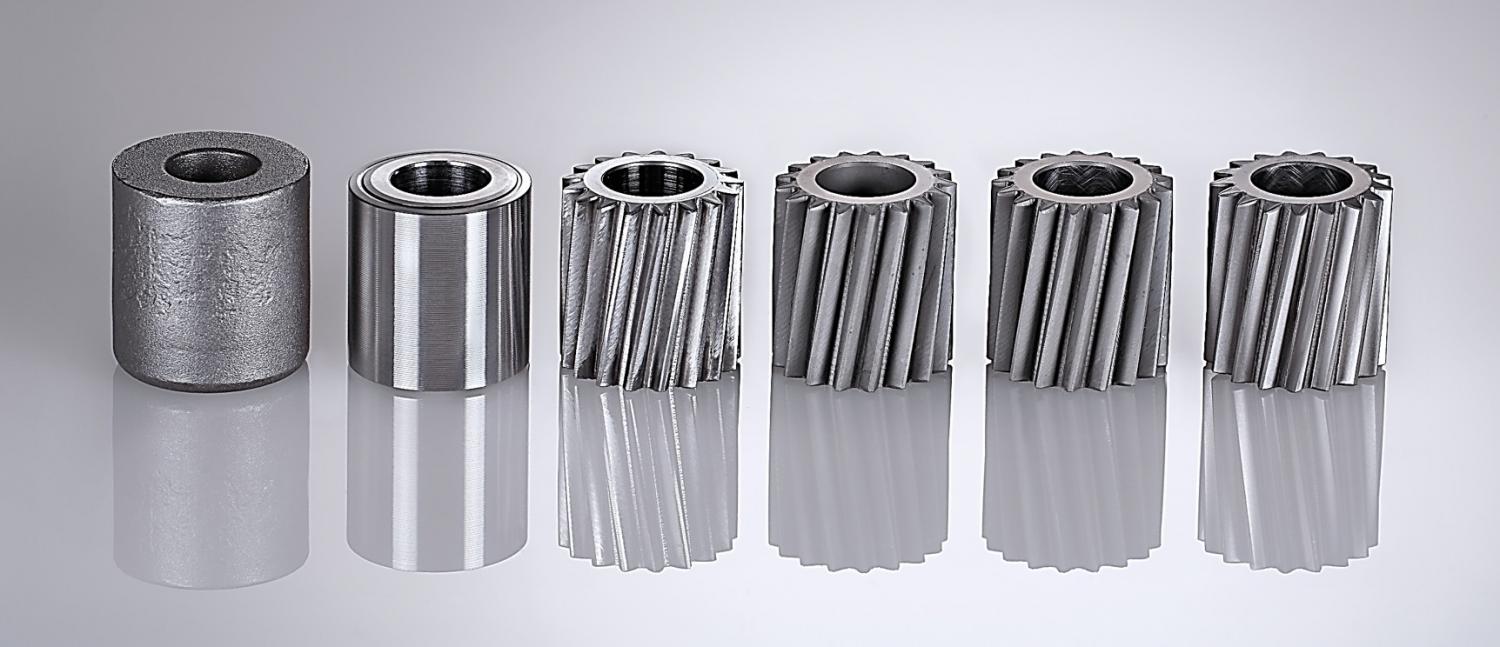

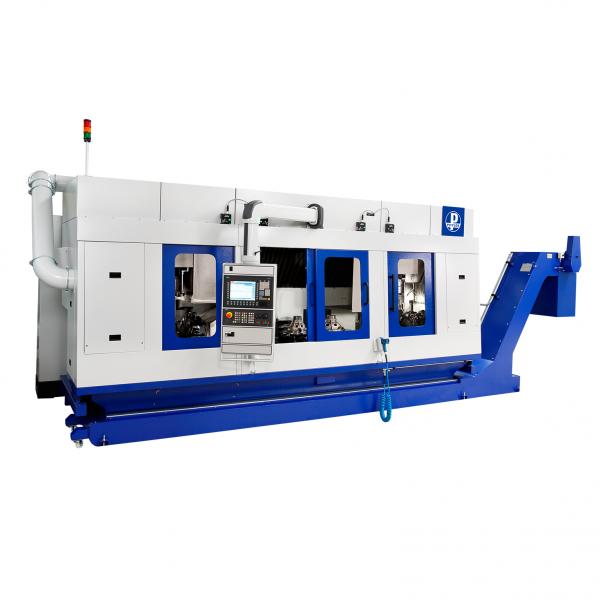
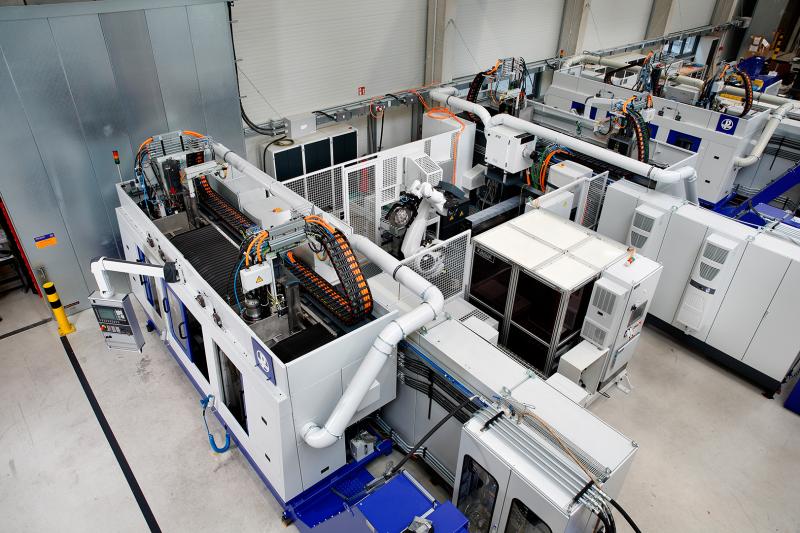
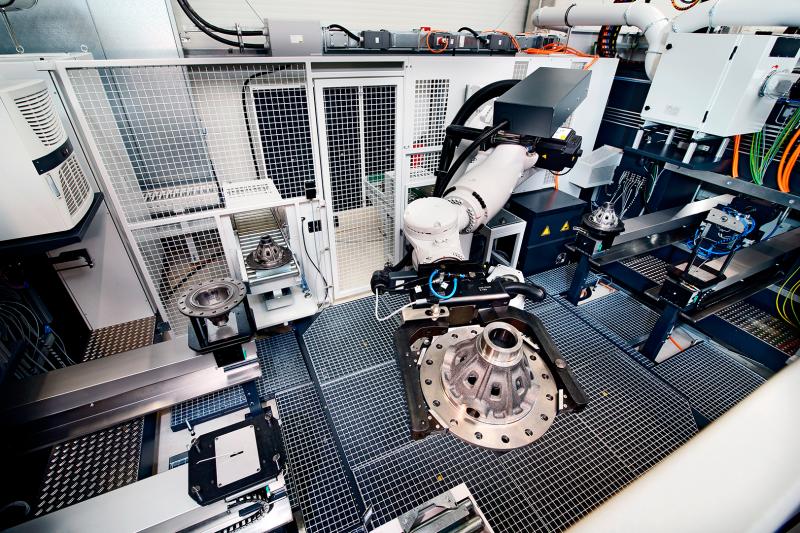
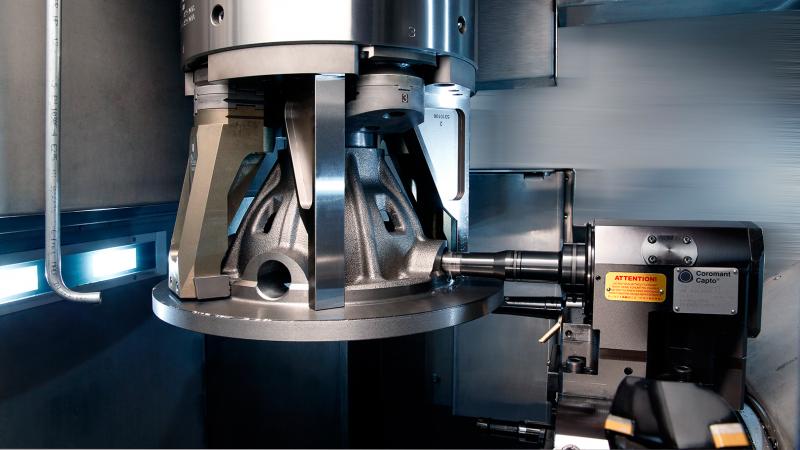
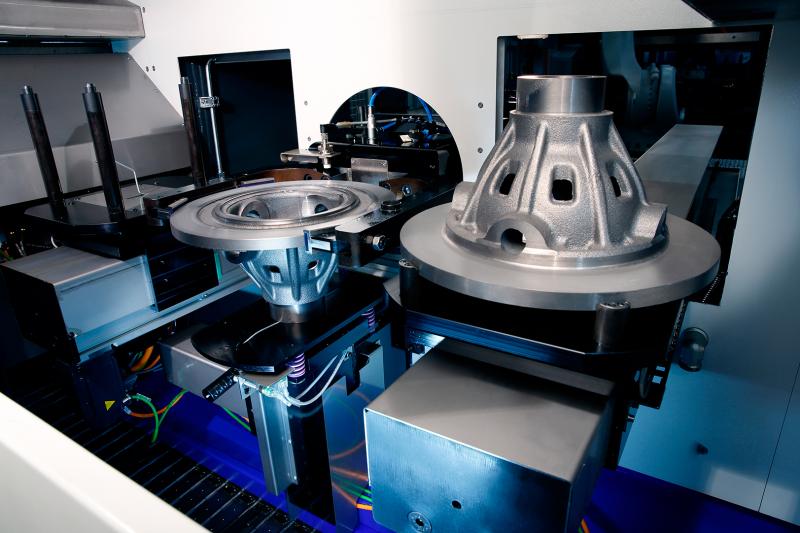
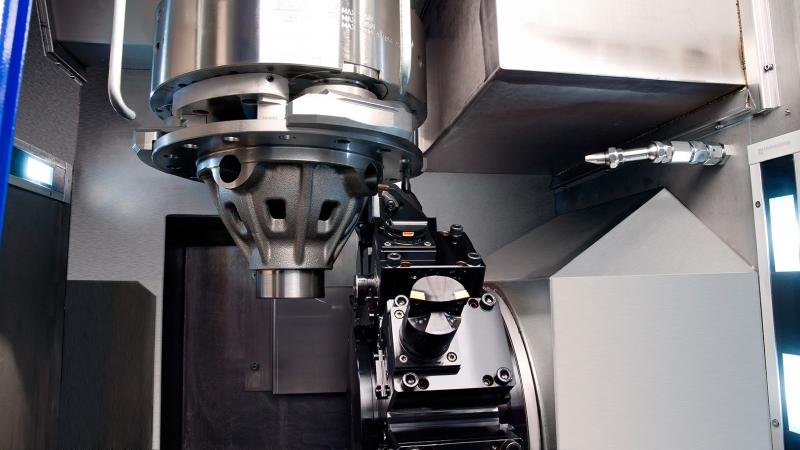
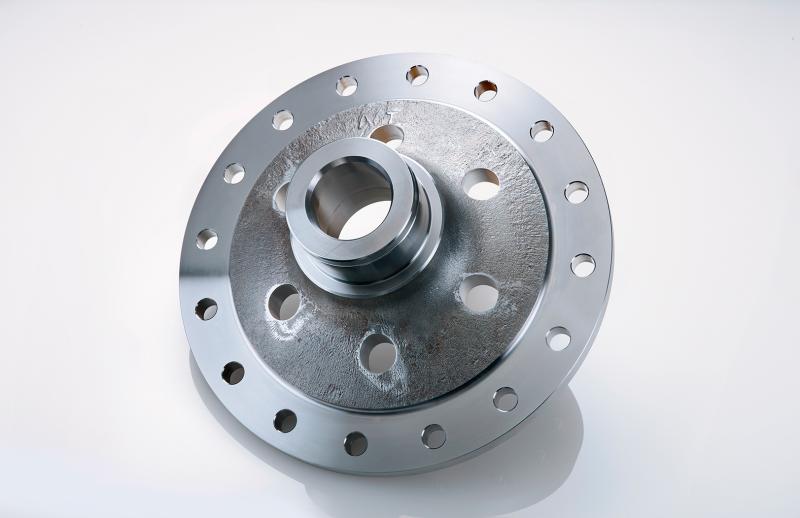
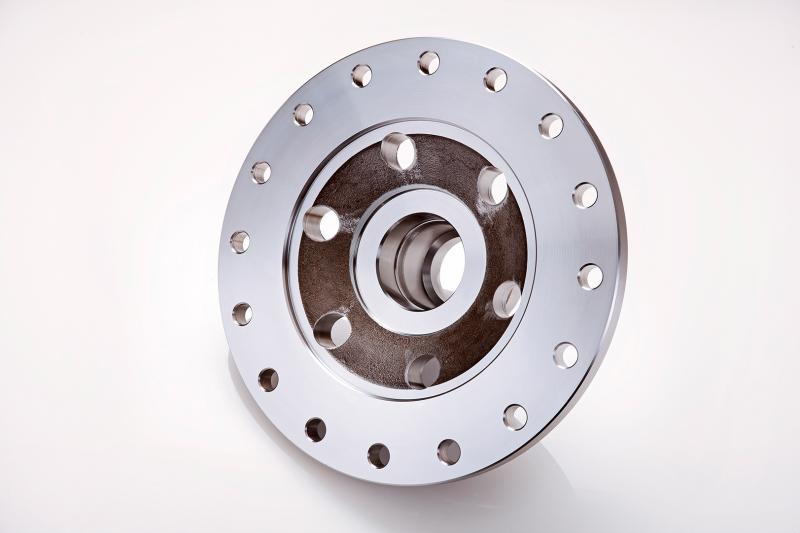
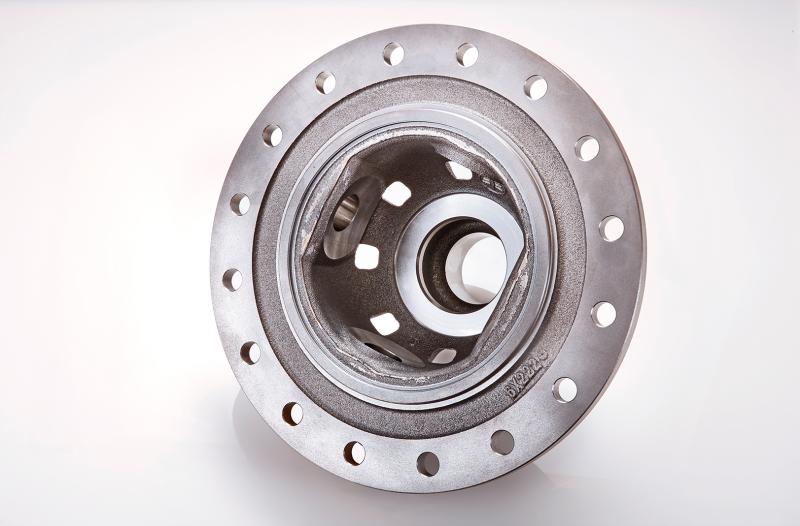
 Germany
Germany 